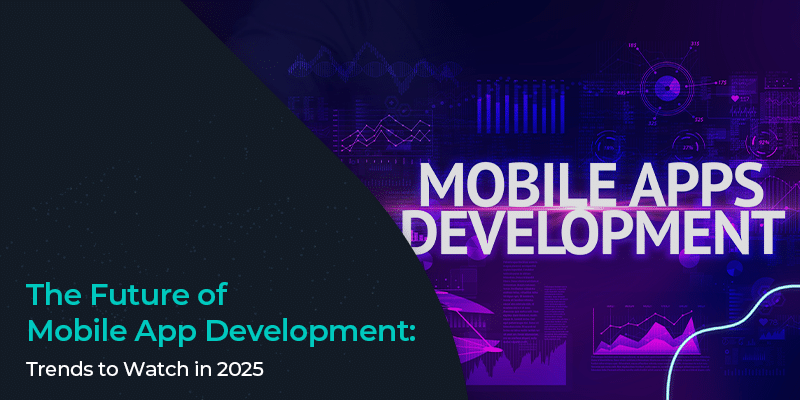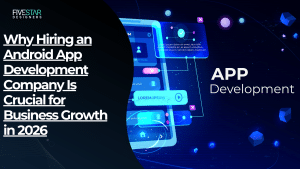Rapid technology breakthroughs and shifting user expectations are driving an unprecedented speed of change in mobile app development. To stay competitive in the digital landscape as we enter 2025, developers and companies need to keep ahead of new developments. The development of mobile apps is expected to undergo revolutionary changes in the future, from improved security features to artificial intelligence. We examine the major developments that will influence the sector in 2025 and beyond in this blog.
AI and Machine Learning Integration
Machine learning (ML) and artificial intelligence (AI) are more than just catchphrases; they are revolutionizing mobile applications by making them more intelligent and user-friendly. AI-driven services, such as voice assistants and personalized suggestions, are improving user experiences in previously unthinkable ways.
Key Benefits
- AI-powered chatbots for automated client service
- Improved customization through analysis of user behavior
- Predictive analytics driven by AI for decision-making
- Voice and picture recognition in real time
5G Technology Revolutionizing Mobile Apps
Mobile app performance is expected to be completely transformed by the introduction of 5G networks, which will provide incredibly high speeds, reduced latency, and enhanced connectivity. Because of this, developers will be able to create more intricate and engaging apps without sacrificing user experience.
5G’s Effect on Mobile Apps:
- Cloud-based gaming and seamless streaming
- Quicker downloads and more seamless video conferences
- Improved experiences with AR and VR
- Better IoT interactions in real time.
Augmented Reality (AR) and Virtual Reality (VR) Expansions
From gaming and retail to education and healthcare, AR and VR are becoming more and more popular in a variety of areas. Developers can produce more engaging and dynamic apps as devices get more capable.
Common Uses for AR and VR:
- For online shopping, virtual changing rooms
- Real-time translations and AR navigation
- Remote training and simulations using virtual reality
- Virtual tours and interactive instructional resources
Increased Focus on App Security and Privacy
Mobile app security is of utmost importance due to the increase in cyber threats and data breaches. Regulations like the CCPA and GDPR are imposing increasingly stringent compliance requirements, and users are becoming more conscious about their data protection.
Improvements to Security:
- Biometric verification (fingerprint scanning, face ID)
- Encrypting messaging apps from beginning to end.
- Blockchain technology for safe transactions
- AI-powered fraud detection and avoidance
Low-Code and No-Code Development Platforms
Low-code and no-code platforms have emerged in response to the need for quicker app development cycles, enabling companies to create apps with little to no coding expertise. Startups and non-technical users are being empowered by this trend to efficiently construct useful apps.
Low-Code/No-Code Development Benefits:
- Quick deployment and prototyping
- Lower development expenses
- Interfaces that can be easily customized with drag & drop
- Increased availability for small enterprises
Progressive Web Apps (PWAs) Gaining Popularity
PWAs, or progressive web apps, provide a cross between online and mobile applications by offering lightweight, quick-loading experiences without the need to download apps from the app store. PWAs are being used by many businesses to improve accessibility and user engagement.
Why PWAs Matter:
- Caching and offline functionality
- Reduced storage needs and quicker loading times
- Compatibility between platforms
- Better SEO advantages than native apps
The Rise of Super Apps
Super applications, which provide several services on one platform, are growing in popularity. These apps, which were influenced by WeChat and Grab, combine chat, payments, shopping, and other features to give users access to a single environment.
Super Apps’ features include:
- A unified experience with several features
- Financial services and in-app purchases that go smoothly
- AI-driven tailored suggestions
- Enhanced user engagement and retention
Edge Computing for Faster Processing
By processing data closer to the source instead of depending on centralized cloud servers, edge computing is revolutionizing mobile apps by lowering latency. For real-time applications in particular, this is advantageous.
How Mobile Apps Are Improved by Edge Computing:
- Quicker reaction times for streaming and games
- Decreased dependence on cloud-based systems
- Improved privacy of data through localized processing
- Enhanced performance of IoT applications
Conclusion
With new technology changing how apps are created and used, the mobile app development market is always changing. 2025 holds intriguing developments that will revolutionize mobile applications, ranging from low-code platforms and enhanced security measures to 5G connection and AI integration.
To create applications that are user-friendly and prepared for the future, mobile app developers and businesses must stay up to date on current developments. Businesses may improve engagement, maximize performance, and provide exceptional digital experiences by utilizing the most recent developments.




